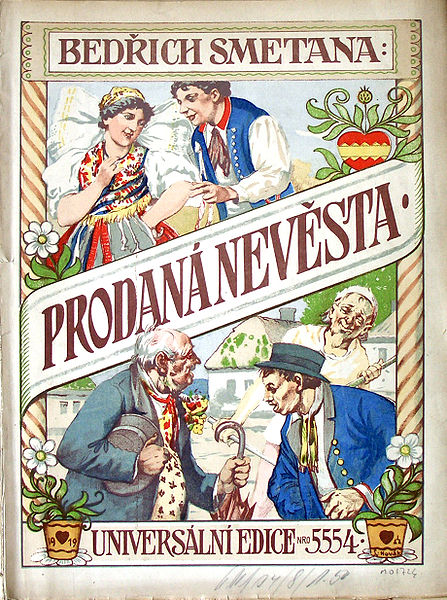The Bartered Bride is a comic opera in three acts by the Czech composer Bedřich Smetana, to a libretto by Karel Sabina. The work is generally regarded as a major contribution towards the development of Czech music. It was composed during the period 1863 to 1866, and first performed at the Provisional Theatre, Prague, on 30 May 1866 in a two-act format with spoken dialogue. Set in a country village and with realistic characters, it tells the story of how, after a late surprise revelation, true love prevails over the combined efforts of ambitious parents and a scheming marriage broker.
Cover of the score, 1919
Disegno per copertina di libretto, drawing for La sposa venduta (undated).
The tune of the opening chorus to The Bartered Bride (English and German texts, published 1909)
Open-air performance at the Zoppot Waldoper, near Danzig, July 1912
Bedřich Smetana was a Czech composer who pioneered the development of a musical style that became closely identified with his people's aspirations to a cultural and political "revival". He has been regarded in his homeland as the father of Czech music. Internationally he is best known for his 1866 opera The Bartered Bride and for the symphonic cycle Má vlast, which portrays the history, legends and landscape of the composer's native Bohemia. It contains the famous symphonic poem "Vltava", also popularly known by its German name "Die Moldau".
František Smetana by Antonín Machek (1832)
Oil portrait of Smetana by Geskel Saloman (1854)
Gothenburg, Sweden, Smetana's base between 1856 and 1861
Prague Conservatoire (modern photograph): Smetana's bid to become its director failed.







